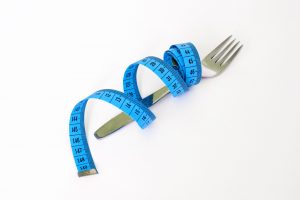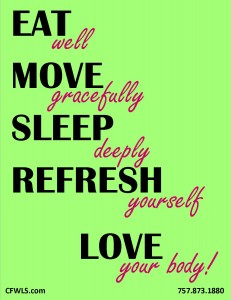 Is fasting something that could be helpful to you? Could it help with your health? Could it help with your weight? The short answer is yes!
Is fasting something that could be helpful to you? Could it help with your health? Could it help with your weight? The short answer is yes!
Fasting is a pattern of eating. It’s been around forever. Food was scarce. Now….not so much. People fasted all the time thousands of years ago because food wasn’t available. We have plenty of food available now. Is this something that can actually be helpful? Is it a form of “fad” diet or are there any health benefits and could it help with weight loss? Fasting versus starvation are two different things. Starvation is never really a good weight loss plan. Fasting is something we choose to do. Starvation is something forced on us. We don’t know where our next meal is coming from. With fasting we know where our next meal is coming from. It’s readily available. We’re just choosing not to have that meal. Your body’s response to those two things is completely different. There can be some health benefits or hormonal changes that occur with fasting. Not with starvation. In the early 1900’s fasting was one of the only ways to treat diabetes. They realized they could at least keep blood sugars decent and controlled. I’m talking about type I diabetics. They also found they could treat some medical problems with avoiding food completely. It fell by the wayside when some of the new medications came along, as well as all the marketing with the food companies. Fasting doesn’t make those huge corporations any money. The last thing they’re going to tell you is to fast and skip a few meals. No one was talking about fasting after that because it didn’t make the big corporations any money at all because it’s free.
Fasting came back into vogue in the 1960’s. In 1965 a 27-year-old Scotsman, at 456 pounds, saw his doctor who suggested he shouldn’t eat for a few days. So he didn’t eat for 382 days!! He lost 276 pounds. He was monitored very carefully by the physician, took vitamins, drank broth, and took extra sodium/potassium. He only regained 16 pounds in 5 years! The point of this is it can actually be done very safely and can show good results. We all fast. Every single night we go to bed we are fasting. That’s where the word breakfast came from. You are breaking the fast. In the 60’s and 70’s most people fasted for about 12 hours a day because you ate breakfast at 700am, lunch at noon, and dinner around 600pm. So most people fasted for a good 12 hours a day. That was pretty normal. Nowadays that’s not so true. The real question to figure out for any individual is how long to do it? It can be done for an extended period of time, and very safely. It should be monitored if you’re going to do it for an extended period.
Isn’t this just calorie restriction? Your body’s response between 0 calories to calorie restriction is different. Everybody knows that when you cut way back on calories you’re going to lose decent weight in a short period of time. And then it quits working. Your body’s response to just decreasing your calories is to slow your metabolism down. Many studies have shown that if you cut your calories back enough you can actually slow your metabolism down to 40%. That’s a big number. If you normally consume 2000 calories and you cut back to 1200 calories, that means you slow your metabolism down to 1200 calories as well. You’re not losing weight anymore. Calorie restriction is a little different because you will slow your metabolism down. With short term fasting, you actually increase your metabolism. Inherently it doesn’t make sense. Think about it this way. Fasting is just a short term acute stress. An acute stress is much different than chronic stress. Chronic stress is when you slow your metabolism down because of severe calorie restriction. Acute stress hormones will go way up. It’s like a Fight or Flight kind of response. Those same hormones come in to play. Growth hormone goes way up. Growth hormone secretes during the fasting. Growth hormone is one of the best hormones to help you lose weight. It’s a fat burning hormone. Studies have shown that with a 24 hour fast, GH will increase 130% in females and 200% in males. If we can boost up our growth hormone it will help us significantly. Fasting decreases fasting insulin levels. Insulin inhibits fat burning. It also improves insulin sensitivity. Fasting increases catecholamines, acute stress hormone (epinephrine and norepinephrine). They are sometimes called adrenaline/noradrenaline. They both help mobilize fat. They both activate the hormone-sensitive Lipase. Lipase is an enzyme that helps break down fat.
Is it just calorie restriction? The answer is NO! It increases your metabolism short term. The real question is when does acute stress turn into chronic stress? It’s hard for me to tell you that in any individual. At some point after so many days acute stress starts turning into chronic. For any individual you need to figure out how long to do it and how often to do it. I can’t actually tell you what the answer is. I can tell you different ways to do it, but you have to figure it out.
 Fasting and calorie restriction are equally effective in decreasing body weight and fat mass, but fasting is more effective in retention of lean body mass. You can do it for an extended period of time (382 days). Fasting can be very helpful for weight loss and breaking through plateaus. We’re going to talk about how you do it and how to get started in a few minutes.
Fasting and calorie restriction are equally effective in decreasing body weight and fat mass, but fasting is more effective in retention of lean body mass. You can do it for an extended period of time (382 days). Fasting can be very helpful for weight loss and breaking through plateaus. We’re going to talk about how you do it and how to get started in a few minutes.
There are some other health benefits to fasting. A natural response to illness is often fasting. We’re not hungry when we feel bad. Hippocrates said, “To eat when you are sick is to feed your illness.” Plutarch said, “Instead of using medicine, fast a day.” This has been around for a long period of time. Physicians realized that it actually could be helpful.
Fasting could help with cancer. Rats who had breast cancer lived longer when they fasted. Fasting seems to protect normal cells and “starves” cancer cells. It starves cancer cells. Many cancers survive on sugar. If we take the sugar away and your body is utilizing your fat to give yourself energy, the cancer cells can’t utilize the fat as an energy source. The cancer cells can die. There are some studies that are looking at brain cancers where very low carbohydrate can kill the cancer.
A study was done on mice and longevity. The mice fasted every other day. They kept the calories the same but they kept the food away from them every other day. The mice that fasted lived almost twice as long! The short (acute) stress may be better than chronic stress.
I want to go back to weight again. I’m going to give you an example. Let’s say you’re trying to be on a 1000 calorie a day diet. That’s a really low calorie diet. That’s 7000 calories a week. What if you did a 1200 calorie a day diet? That could be much easier to tolerate. It probably won’t slow your metabolism down because it’s not so calorie restrictive. You could fast one day a week. The numbers come out about the same. It’s still 7000 calories a week. The 1200 calories a day is much more tolerable and you get the hormonal benefits of fasting.
Fasting increases Neuronal Autophagy. That means the breakdown products around the neurons which have to be removed. Subsequently fasting helps do this. It also increases Brain Derived Neurotrophic Factor (BDNF). This helps regulate memory, learning, and cognitive function. Your brain uses ketones wonderfully. Fasting increases ketones. You don’t need sugar for your brain! Keystones actually work better. They’re made from B-hydroxybutyrate which is neuro-protective. There’s some good evidence that is can protect your brain long term and make it less likely to get Alzheimer’s.
What about exercise? We tell you all the time to eat your protein to improve exercise benefits. How could fasting possibly help? First of all, don’t even consider fasting and training if you’re not going to hydrate well, sleep well, and become fat adapted (low carb diet). There is good evidence that well-trained athletes who live in ketosis actually perform better once they adapt to it. Most people don’t take the time to get adapted to ketosis. Fasting likely improves your adaption to exercise by forcing you to train in a less optimal state, which can boost performance down the line. It likely won’t improve your performance right then, but you’re working in a stress condition. It can actually could benefit exercise.
So how do you do this? Implementation is the only way that any of the theoretical benefits will help you! Extended fasting can be done for long periods. If weight loss is your main goal, I don’t recommend doing multiple extended fasts. You don’t want to transition from acute stress to chronic stress. Typically it’s going to be in that 2-3 day range. Again, you’d have to play with that. See how you feel and how you do. You don’t want to lose those acute stress benefits. Again, it can be done indefinitely.

A couple of rules apply. You want to make sure you get quality sleep. Sleep counts as fasting hours. Fasting doesn’t make up for a poor eating plan. You have to have a good eating plan. If you don’t eat well, no method of fasting is helpful besides possibly a few less calories. Fasting is always easier to do on a low carb diet (controls blood sugar swings and cravings). When you first start fasting, I assure you that you will have hunger and cravings. Hunger tends to go away. It doesn’t just keep increasing. It comes in waves. Most people notice after the 2nd day that hunger goes away. It’s much easier to get there with a low carb diet.
There are a lot of different ways to do fasting. There’s one that’s fairly popular. A lot of people talk about it. It’s referred to as Leangains. (16/8). In a 24 hour period you fast for 16 hours and there’s an 8 hour window when you eat. For 16 hours you push non caloric fluids. It can include tea and black coffee. If you’re going to fast, I encourage you to avoid anything that’s artificial (flavors, sweeteners and colors). The best way to break the fast and get results is after a workout. People often do this every day. Some people narrow the window down. That means a 20 hour fast and a 4 hour window. There are a few people out there that do 1 meal a day.
Another way to fast is Eat-Stop-Eat. Once to twice a week you don’t eat for 24 hours (you pick the time). There is good evidence that the later you have your dinner, the bigger the insulin response. The same meal you eat at lunch is going to have a different insulin response than the one eaten at dinner. Having your main meal earlier is a good thing.
The 5:2 Diet is not a true fast. It’s eating healthy for 5 days a week. For 2 non-consecutive days you cut the calories down to 400-500 calories. That adds up to about 1 day of a fast. Some people find this a lot easier to do. You can drink protein shakes for your meal.
Feast, then fast is eating one big meal a day then fast the remainder of the 24 hours.
Alternate day (often used in research) can work really nicely. You eat normally one day, then don’t eat the next day. Some people will do that with a true 36 hour fast. You can do this 1-2X a week. It’s hard to start. Once you get used to it, it’s very doable.
You can do extended fasting.
There are a few questions that always come up. Won’t you lose lean body mass? It works best when you’re keto-adapted; burning fat as energy. You actually don’t lose lean body mass. There’s been a good study that looked at alternate day fasting for two months. The people lost no lean body mass. It was all fat. Can you exercise during a fast? It really depends on your response to the exercise. You might want to cut your exercise back a little bit. You want to stay active because “slugs” tend to dwell on food. Stay busy so you’re not thinking about food. How often should you fast? You can do it daily and have that window (leangains). You can do it 1-2 times a week. Or you can do it for an extended period of time. You have to figure it out. I’d love to be able to tell you what the right answer is but I can’t. You need to figure out how long to do it and how often. Should you take your vitamins on fasting days? It depends on how well you tolerate them on an empty stomach. You can skip those days if you’re not able to tolerate them. No one ever got vitamin deficient by missing one day of vitamins. Vitamin deficiency is a long term issue, not a 1 day issue. Who shouldn’t fast? The following people should not fast: if you’re under high stress, over-training, chronic poor sleep habits, eating the standard American diet, underweight, pregnant, breastfeeding , or if you’re a child (if you’re still growing).
What are the advantages of Intermittent Fasting? It’s available immediately to anyone! It’s simple, effective, no skill needed, and it will work. It’s free and will save you money! Fasting is convenient and saves time! We make thousands of food decisions every single day (What am I going to eat? Where am I going to eat? How much am I going to eat?). If you’re not eating, you’ve gotten rid of all the anxiety about what where and when? It’s flexible and you can add it to any diet. You can do it wherever and whenever you want. It gives you unlimited power. You decide how long and how often. You’re in control.
Do not use intermittent fasting as self-punishment for “bad” eating or to “make up” for a generally poor diet. For any individual you need to determine how long to fast and how often to fast. No one can figure that out for you! What do I do?? I’ve been fasting for years. I typically fast one day a week. I have my last meal on Tuesday. I will fast until Thursday morning. I push the water like crazy. I typically exercise the way I always do. If I get a little worn out, I cut it short. I try to keep the rest of my routine fairly normal. I stay busy. It works with my schedule. When I first started fasting, it was incredibly difficult. It was hard, but it’s very doable. I originally was going to fast for 24 hours (Tuesday evening to Wednesday evening). Here’s my problem: typically you’re hungry in evening. So if you’re going to break your fast in the evening, it’s a lot harder to break it gently than to just have a normal amount of food. I found that if I could just get through those few hours in the evening and go to bed, I could wake up the next morning not hungry. Most of us don’t wake up hungry. I found it easier to do a 36 hour fast than 24 hour. I routinely do it once a week. If I have some kind of event like a birthday celebration, I don’t fast. I change the day. Nothing is written in stone. You get to make the rules. That works well for me. That doesn’t necessarily mean it’s right for you. But, it can be.
Here are a few tips if you’re thinking about it. You want to drink lots of water. Stay busy. I certainly wouldn’t sit around in the kitchen. Ride out “hunger waves.” Hunger is not something that keeps escalating. It goes away. I would encourage you to not tell everybody that you’re doing this, especially those who aren’t supportive. They’re just going to look at you like you’re crazy. You want to avoid high stress time. If you’re in the middle of a move or you have a big project going at work it will be a lot harder. Try practicing. Give yourself some time. Try it for a month. Just try it intermittently. Just like everything we practice, it gets easier. Follow a low carb diet between fasting periods. This reduces hunger and makes fasting easier. Don’t binge after fasting. Break the fast gently. Fit fasting into your own life. Don’t change your life to fit your fasting schedule. Change your fasting schedule to fit your life!
Mark Twain said, “A little starvation can really do more for the average sick man than the best medicines and the best doctors.” There’s probably a lot of truth to that statement.
If you have questions, don’t hesitate to give us a call or text us at The Center for Weight Loss Success 757-873-1880. You should be stopping by to get your body composition done. Fasting can help you preserve that lean body mass!
Remember! It’s your life. Make it a healthy one! Have a good evening everyone! Take care!






 Cat Keller has a wealth of experience in marketing, e-marketing, advertising and customer service and manages our Weight Loss Nutritional Store. She is always planning something fun and exciting. special events, discounts, giveaways – it’s never a dull moment. She is happy to help you with questions you may have regarding our products or services. Cat is a graduate of William & Mary, where she studied Government/Pre-Law and minored in Marketing.
Cat Keller has a wealth of experience in marketing, e-marketing, advertising and customer service and manages our Weight Loss Nutritional Store. She is always planning something fun and exciting. special events, discounts, giveaways – it’s never a dull moment. She is happy to help you with questions you may have regarding our products or services. Cat is a graduate of William & Mary, where she studied Government/Pre-Law and minored in Marketing.